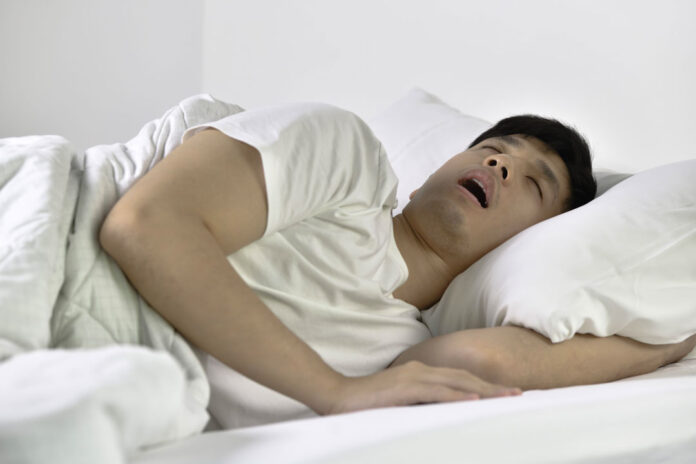Central sleep apnea (CSA) is one of the significant breathing issues that individuals face during sleep. Adaptive Servo Ventilation (ASV) is an efficient device that provides pressurized air via tubing through a face mask. It helps measure breathing patterns and provides customized pressure deliverables to stabilize breathing patterns at night.
ASV is similar to auto-positive airway pressure and bilevel-positive airway pressure. It helps control CSA issues, which generally slow the breathing rate or cause long pauses while sleeping.
ASV devices are helpful as they help individuals have a peaceful sleep throughout the night, ensuring one does not face breathing issues. Adaptive servo ventilation can be received at a preferred clinic with sleep specialists.
What Are The Uses of ASV?
ASV devices are usually recommended to individuals suffering from central sleep apnea, as it helps control breathing issues throughout the night. Individuals falling under the following criteria are often recommended for using ASV devices.
- Systolic heart failure
- Narcotic-induced CSA
- Primary CSA
- Complex CSA
- CSA caused due to brief arousals from sleep.
How to Identify CSA and Consider the Use of ASV
If you are experiencing breathing issues during sleep, you must consult your doctor and visit a specialist to understand your symptoms. With the help of a Polysomnography, also known as a sleep study, you can identify if you have sleep apnea or other breathing-related issues during your sleep.
After a thorough medical examination, your doctor can provide insights on using ASV devices, allowing you to sleep peacefully. However, the doctor will also test your heart functioning and, depending on its stability, recommend using Adaptive servo-ventilation.
Benefits of Adaptive Servo Ventilation
Individuals suffering from sleep apnea and having Cheyne-stokes breathing often tend to have poor heart conditions and functioning. With the help of using ASV devices, a patient can enhance and improve their overall respiratory issues. It provides controlled breathing and offers the required air pressure to clear any blocks in the respiratory tract.
Patients suffering from Central Sleep Apnea and complex sleep apnea are most benefited when it comes to the use of ASV devices. The use of ASV therapy in treating sleep apnea is one of the most beneficial therapy for individuals having a troubled sleep due to breathing issues at night. Moreover, considering the different treatments related to preventing sleep apnea, ASV is effective and comfortable for individuals using it.
Adaptive Servo Ventilation is a handy way to improve your sleep apnea conditions, providing you with a clear airway passage throughout the night, thereby offering you an undisturbed and peaceful sleep. Therefore, after a thorough consultation with your doctor or healthcare provider, one can start using ASV therapy and improve their overall health conditions and breathing issues.
Things to Know if you Have a Heart Problem
Individuals suffering from complex sleep apnea and sleep disorders related to congestive heart failure with high ejection fraction should think again before using ASV. If a person suffers from a difficult diagnosis of CSA and a tendency to heart failure, the continued use of ASV must be checked with a specialist.
Furthermore, individuals diagnosed with low heart functions with high CSA ratios must consult a doctor before using ASV.
Final Thoughts
Before using ASV devices, one must consult their doctors and healthcare providers. The doctors will be able to provide them with thorough assistance on their health conditions and the requirement for using an ASV device. It will help them improve their sleep disturbance caused due to breathing problems.
Read Also
- Your Guide to Finding a Trusted DentistChoosing the right dentist in Sandgate or your area is crucial for maintaining good oral health and achieving a confident smile. With countless dental practices to choose from, patients may find the task daunting. Data from the American Dental Association indicates that there are over 200,000 practicing dentists in the United States, highlighting the importance… Read more: Your Guide to Finding a Trusted Dentist
- Achieving a Defined, Balanced Facial Contour in SingaporeA well-defined jawline and a gently tapered lower face — commonly referred to as a V-shaped face — is a look many people aspire to. In Singapore’s beauty and aesthetic scene, treatments that help refine facial contours have grown in popularity as more individuals seek subtle, natural enhancements that boost confidence and balance facial features.… Read more: Achieving a Defined, Balanced Facial Contour in Singapore
- The Wellness Blueprint: How Your DNA Holds the AnswerGenetic testing is revolutionizing preventive healthcare by offering insights into individual health risks. By analyzing DNA, these tests provide a personalized health blueprint that can guide lifestyle and medical decisions. This approach, often referred to as DNA wellness testing, helps to optimize health naturally and prevent potential diseases. In recent years, genetic testing has become… Read more: The Wellness Blueprint: How Your DNA Holds the Answer
- Exploring the Benefits of Infusion Therapy in OKC: The Ultimate GuideUnderstanding Infusion Therapy: A Deep Dive into Its Purpose and Process What exactly is Infusion Therapy? Infusion therapy is an advanced medical treatment that delivers medication and nutrients directly into the bloodstream through a vein, typically via an IV (intravenous) line. This method is particularly beneficial for patients who require a concentrated dose of medication,… Read more: Exploring the Benefits of Infusion Therapy in OKC: The Ultimate Guide
- Ketamine-Assisted Therapies: Impacts on Employee WellbeingWorkplace stress is common today. Many employees feel tired, anxious, or burned out. Regular therapy can help, but some people need more support. Ketamine-assisted therapy is showing good results for mental health. A ketamine-assisted therapist guides each session safely. This therapy can improve mood, focus, and energy. Learning more about it can help teams stay… Read more: Ketamine-Assisted Therapies: Impacts on Employee Wellbeing






